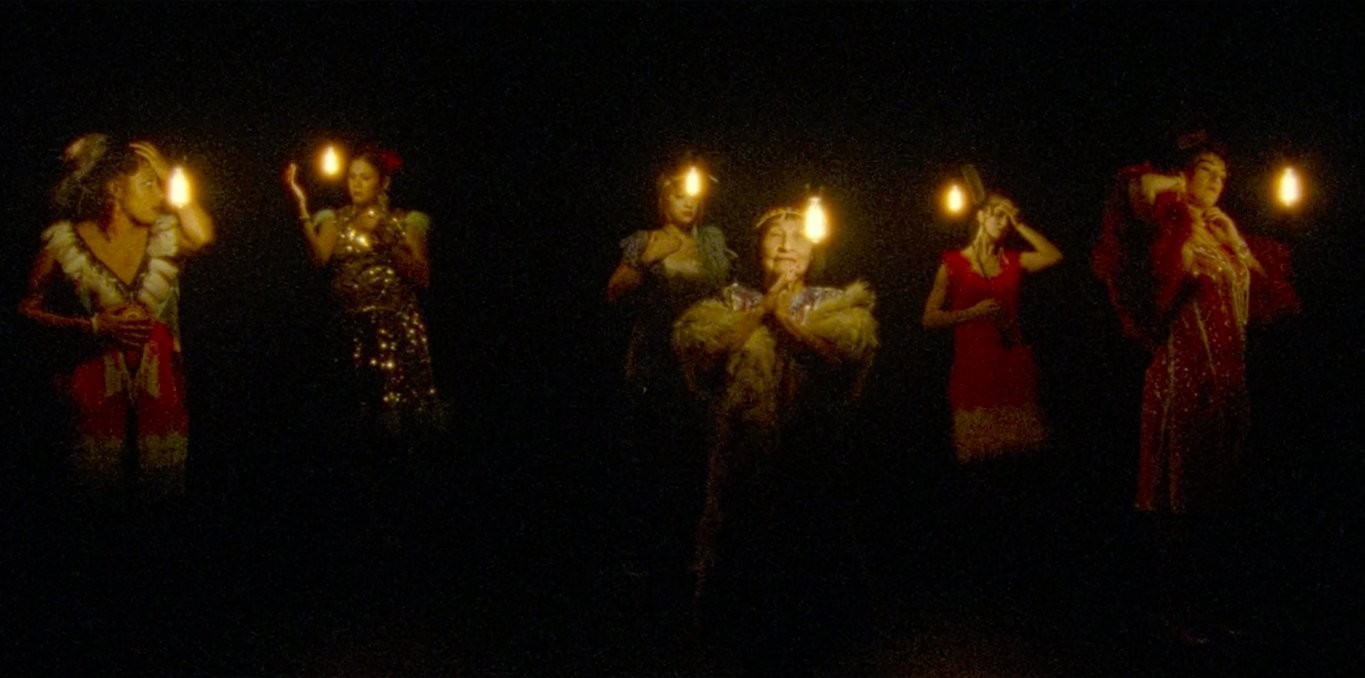Feminism

105 products
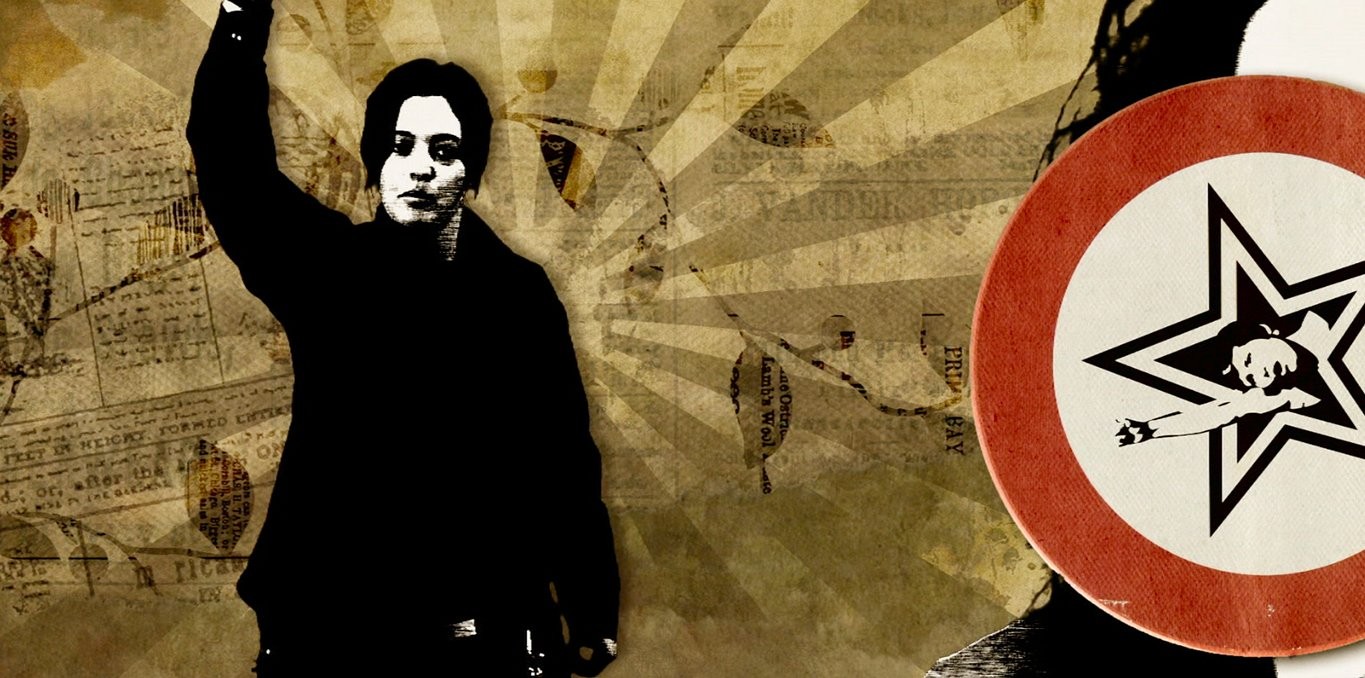
Attention féministes!
Subscription access
Portraits of young contemporary feminists. Geneviève, Barbara, Pascale, Coco and Marco: so many ways of being feminists today! At a time when ideologies have been declared dead, these young people still believe in a better world! Through their personal and social commitment, we discover the “new” face of feminism, that of the girls and boys of generations X and Y. A dynamic movement, a mode of ...
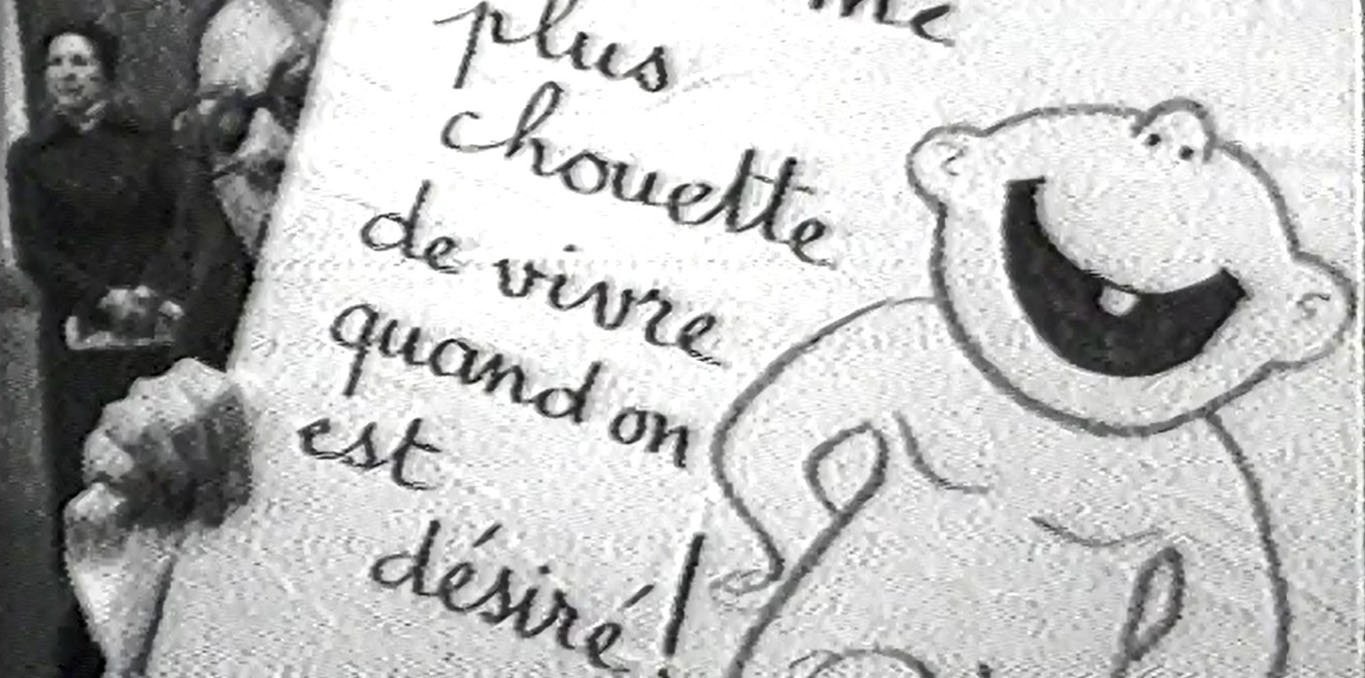
Y'a qu'à pas baiser !
Subscription access
This documentary about abortion was made when it was still illegal in France. It looks at why women decide not to keep their child and how an abortion is carried out according to the Karman method. The film also shows the first women’s demonstration in favour of abortion held on November 20, 1971.
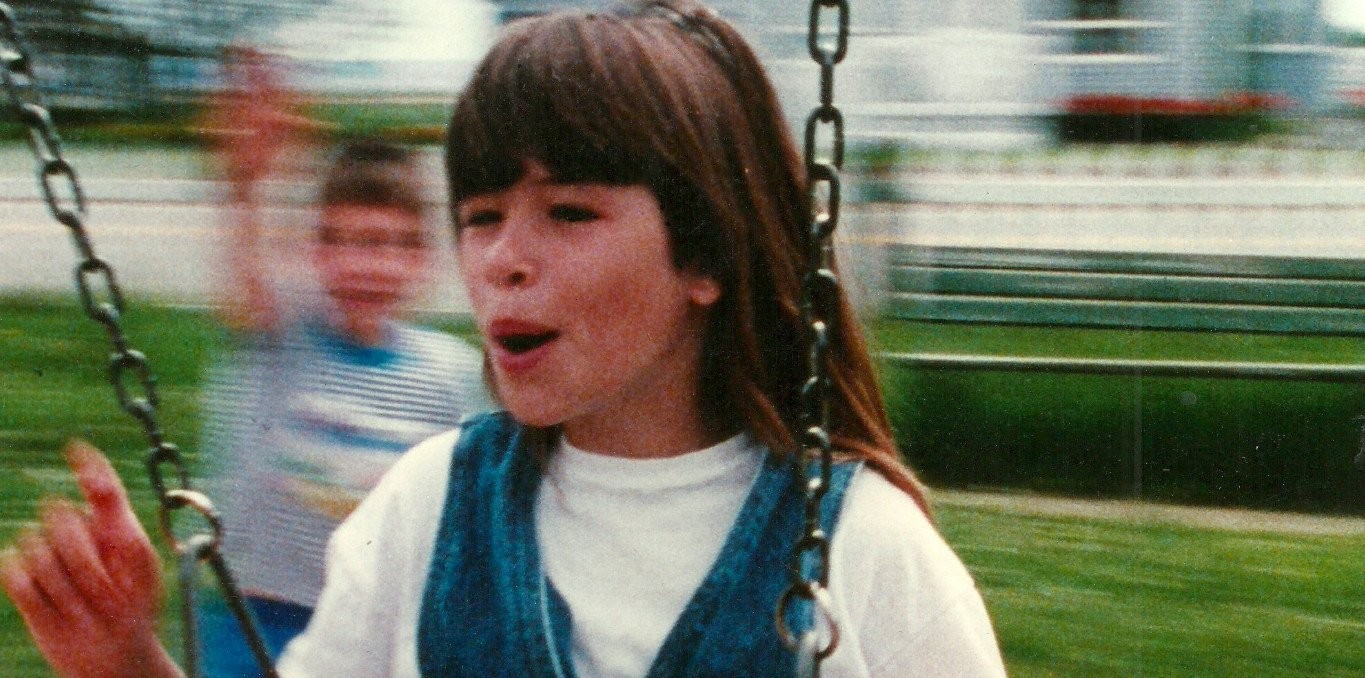
Landscape in the Mind's Eye
Subscription access
Through the eyes of children and women from different generations, this film reveals the soul of a small village on Quebec’s North Shore. Madame Kennedy shares a vital bond with the forest; Diane, faced with the hardships of her life’s journey, lifts her head high; Cathy, at 18, possesses the biting clarity of those who have had to fight. The strength and determination of each woman converge...
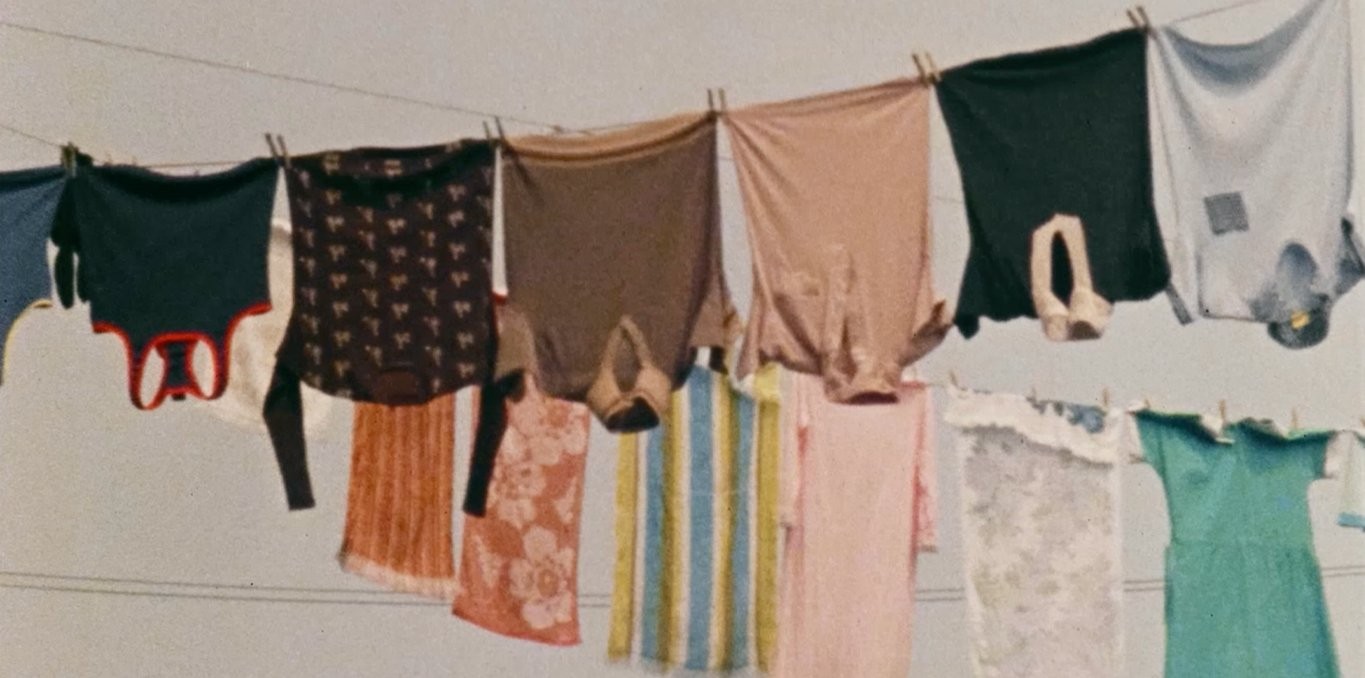
Clotheslines
Subscription access
_Clotheslines_ poetically documents the pragmatic, symbolic and artistic role of laundry in women's lives. The film presents an enduring, vivid account, showing how the creative energies of women have been sapped by mundane tasks, and in turn how such tasks reflect a ritualistic approach to life.
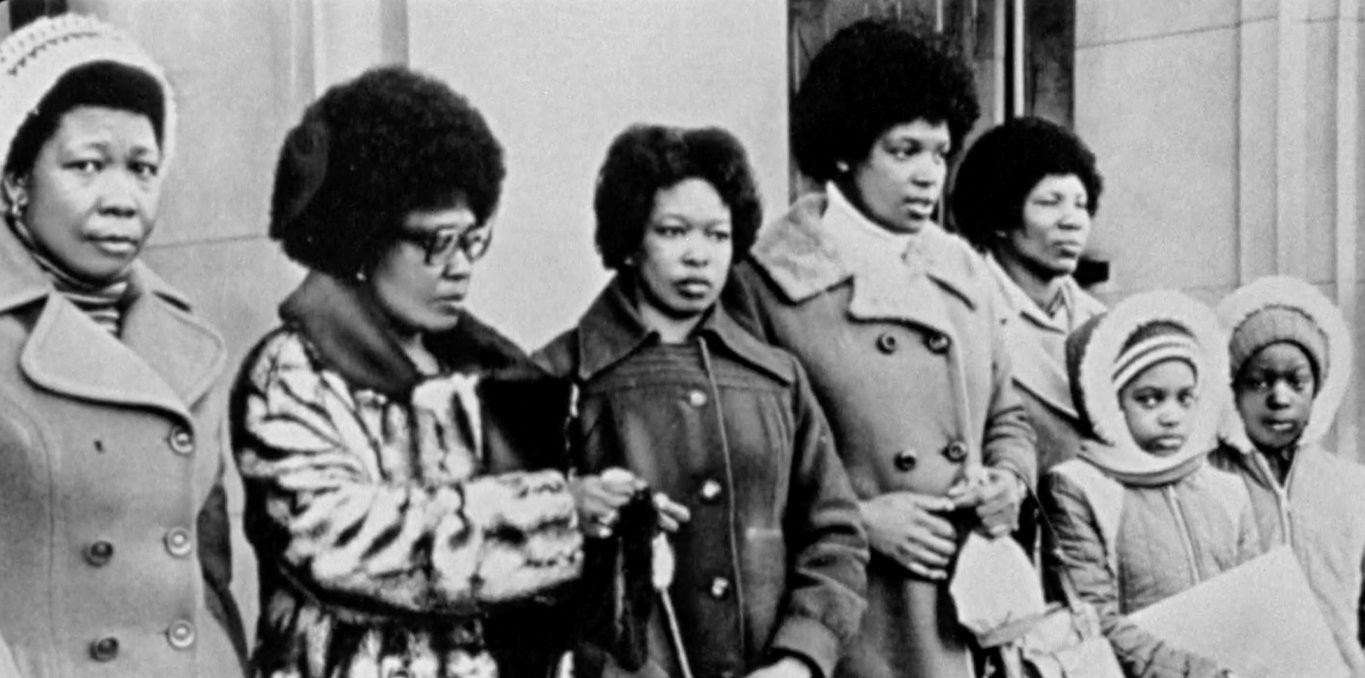
Sisters in the Struggle
Subscription access
This documentary features Black women active in politics as well as in community, labour, and feminist organizing. They share their insights and personal testimonies on the dual legacy of racism and sexism, linking their lived experiences to the ongoing struggle to end systemic discrimination and violence against women and people of colour.
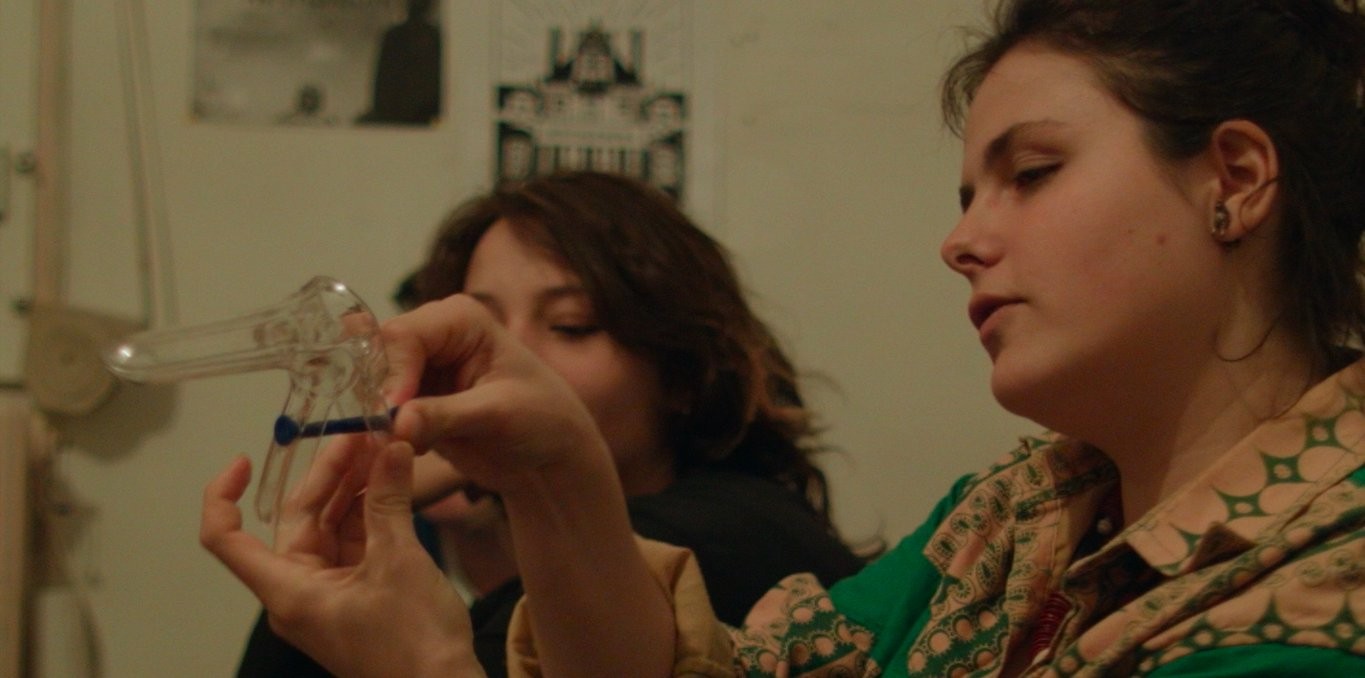
Mat and Her Mates
Subscription access
October 2018. Mat and her friends organize a self-gynecology workshop in their squat in Nantes. It's an opportunity for filmmaker Pauline Pénichout to paint a portrait of this young woman.

Jours en fleurs
Subscription access
_Jours en fleurs_ is a reclamation of flower-power that celebrates both the fertile and the fierce forces of nature, reinventing their relationship to the feminine. Images of flowering trees soaked in menstrual blood for several months undergo a gestation of decay, whose visceral ravages give rise to a beauty that is at once dark and luminous, endowing them with the Baudelairean “formless and m...
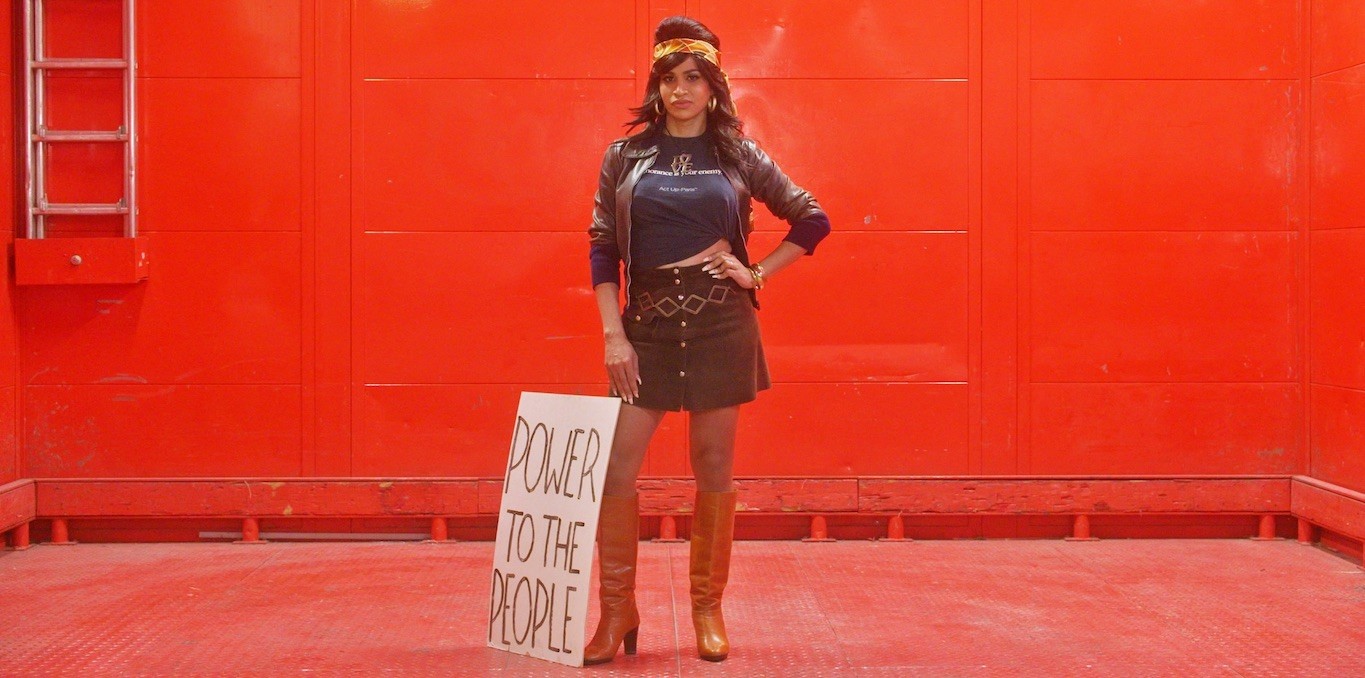
Orlando, My Political Biography
Orlando, My Political Biography
Duration: 1h38Virginia Woolf wrote Orlando in 1928, the first novel in which the hero, who becomes a heroine, lives through five centuries (1588-1928) and changes gender in the middle of the story. A century later, researcher, curator, author, and transgender activist Paul B. Preciado decided to send a filmed letter to Virginia Woolf: his Orlando had stepped out of her fiction and was living a life she could...
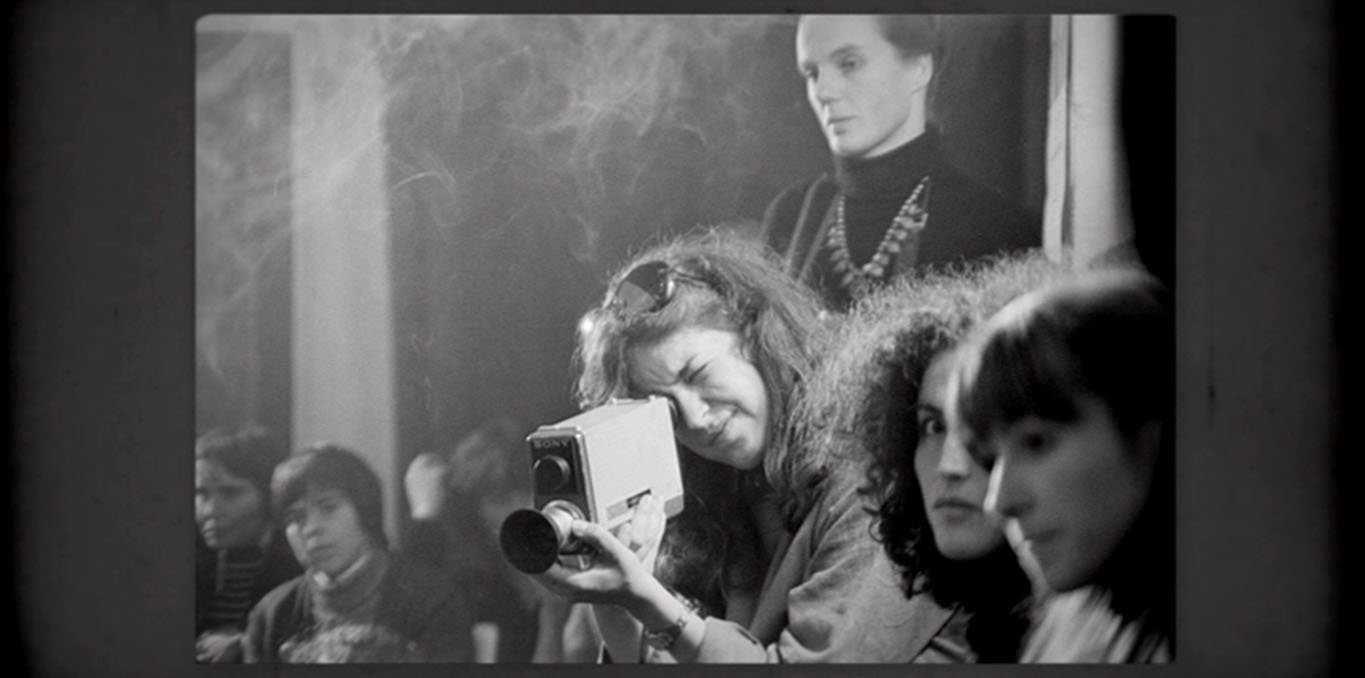
Carole Roussopoulos, A Woman With Her Camera
Carole Roussopoulos, A Woman With Her Camera
Subscription accessLe parcours de vie de Carole de Kalbermatten, Valaisanne de bonne famille qui, à 21 ans, gagne Paris, où elle rencontre Paul Roussopoulos. Le film a pour centre son travail de pionnière de la vidéo et pour périphérie son couple, l'amour comme source d'énergie permanente, une incessante complicité créatrice, la politique, la découverte des premiers outils de la vidéo, Jean Genet, la Palestine...
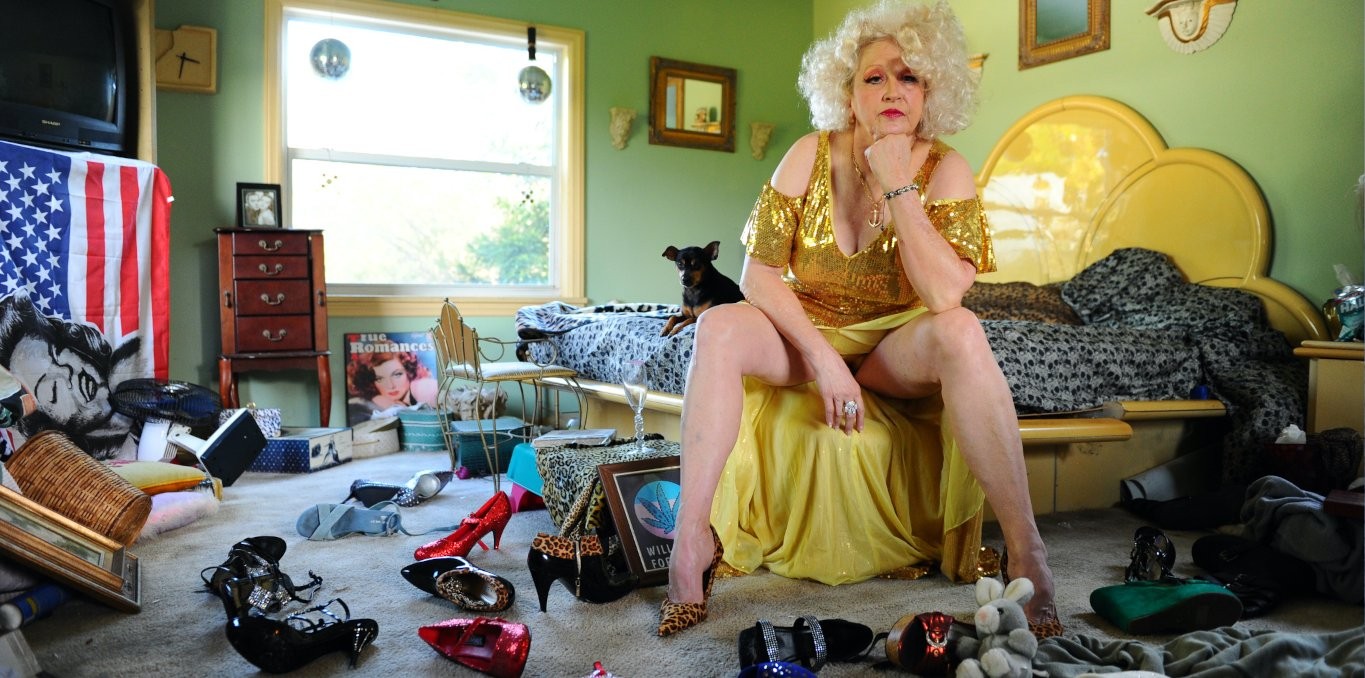
Legends, The Living Art of Risqué
Legends, The Living Art of Risqué
Subscription accessA tribute to the North American pioneers of striptease and the golden age of burlesque coupled with a reflection on sex and gender. Today's elderly women from modest families pose for photographer Marie Baronnet in their work clothes. They evoke their life on the roads, the stage, the struggle for their rights, the transformation of their bodies. These archival images give an idea of their l...

La Conférence des Femmes. Nairobi 85
La Conférence des Femmes. Nairobi 85
Subscription accessAfter Mexico City 1975 and Copenhagen 1980, the United Nations chose Kenya for the 3rd World Conference on Women. Parallel to the official Conference of States is held in July 1985 the Forum of Non-Governmental Organizations (NGO), in which 12,000 women participate. For ten days, on the University campus, they meet to discuss general and feminist political issues: peace, development, apartheid,...
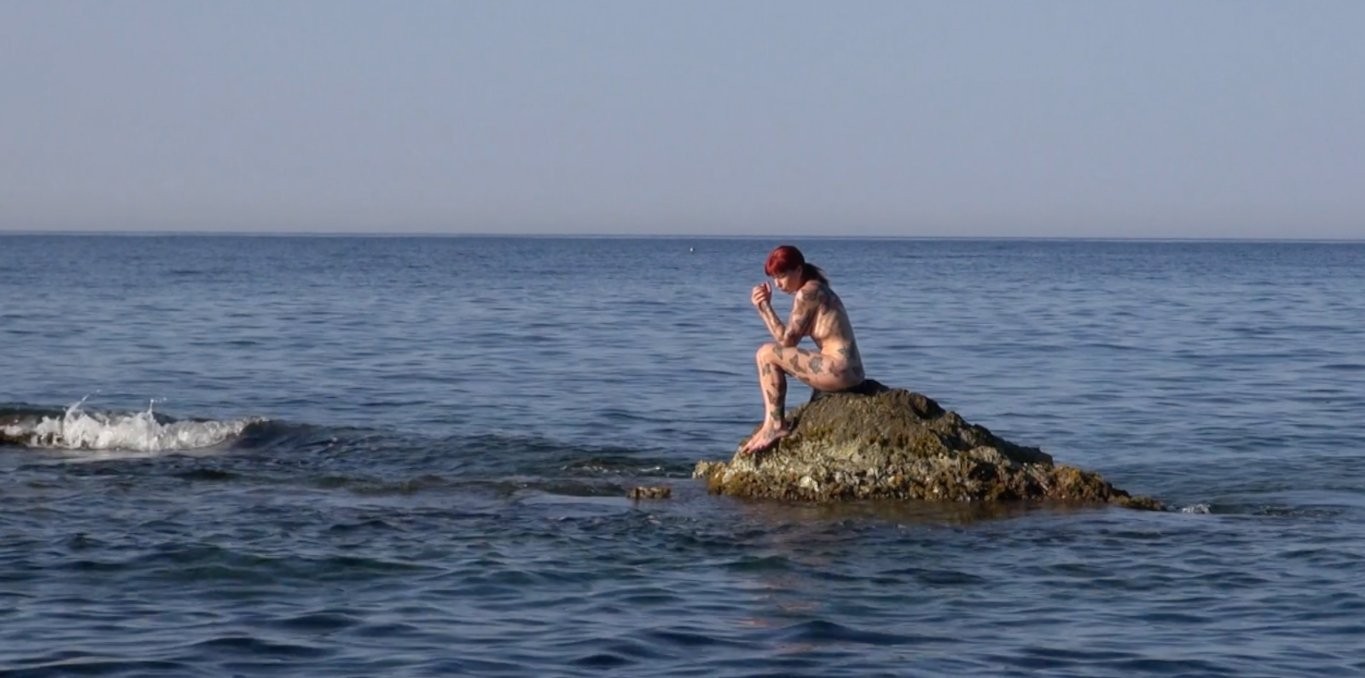
& a Fade to Grey
Lydie Jean-Dit-Pannel, haunted by a stay in the Fukushima region, produces an engaged video poetry dealing with the risks and disasters of civil and military nuclear power. She uses the character she has created for herself, the "lady butterfly", as a vector and makes it coincide with an iconic character, Psyche, who serves as her guide, in a poetic and ironic way. A testimony and a solitary,...
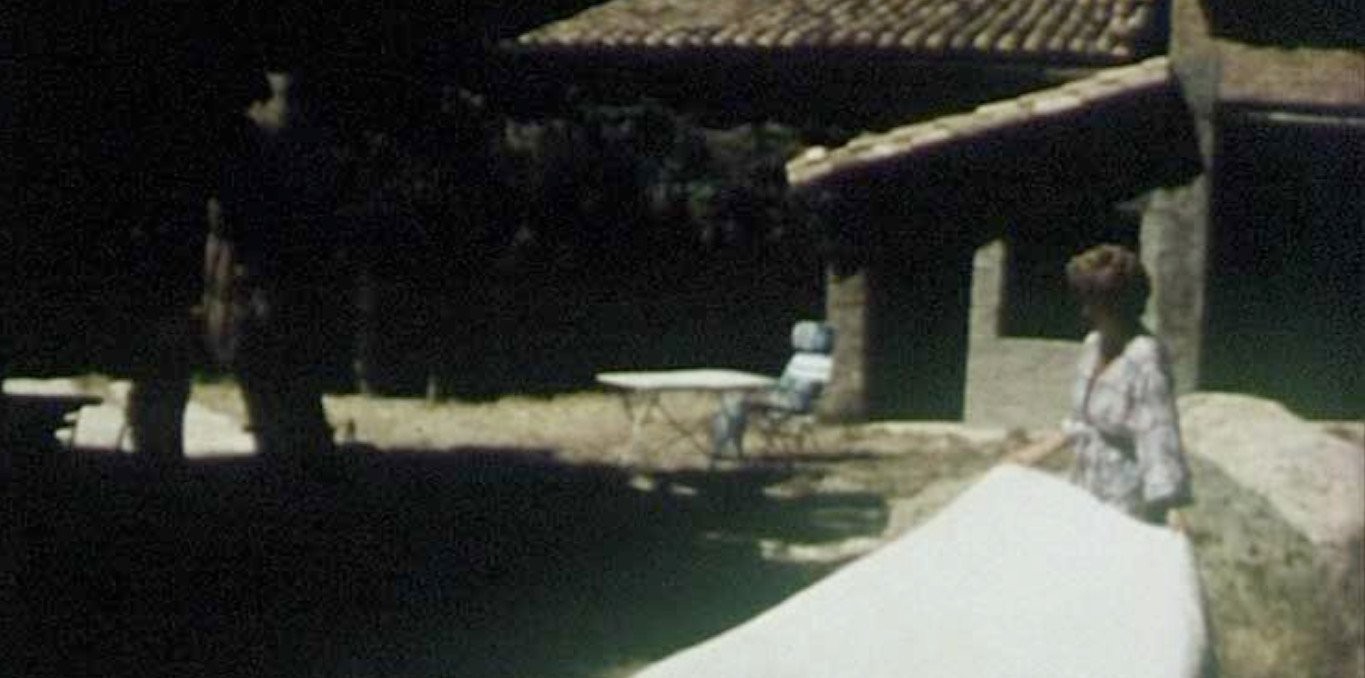
Allers-venues
Women meet for the summer in a Provençal house. In a rather idyllic nature, they get active, paint, do gymnastics, rest, sometimes dressed, sometimes not. They can also be seen inside the house, busy preparing meals and always in the company of animals; cats or chickens. In spite of the fast pace of the images and the wild soundtrack, the atmosphere is serene until the separation, when the holi...
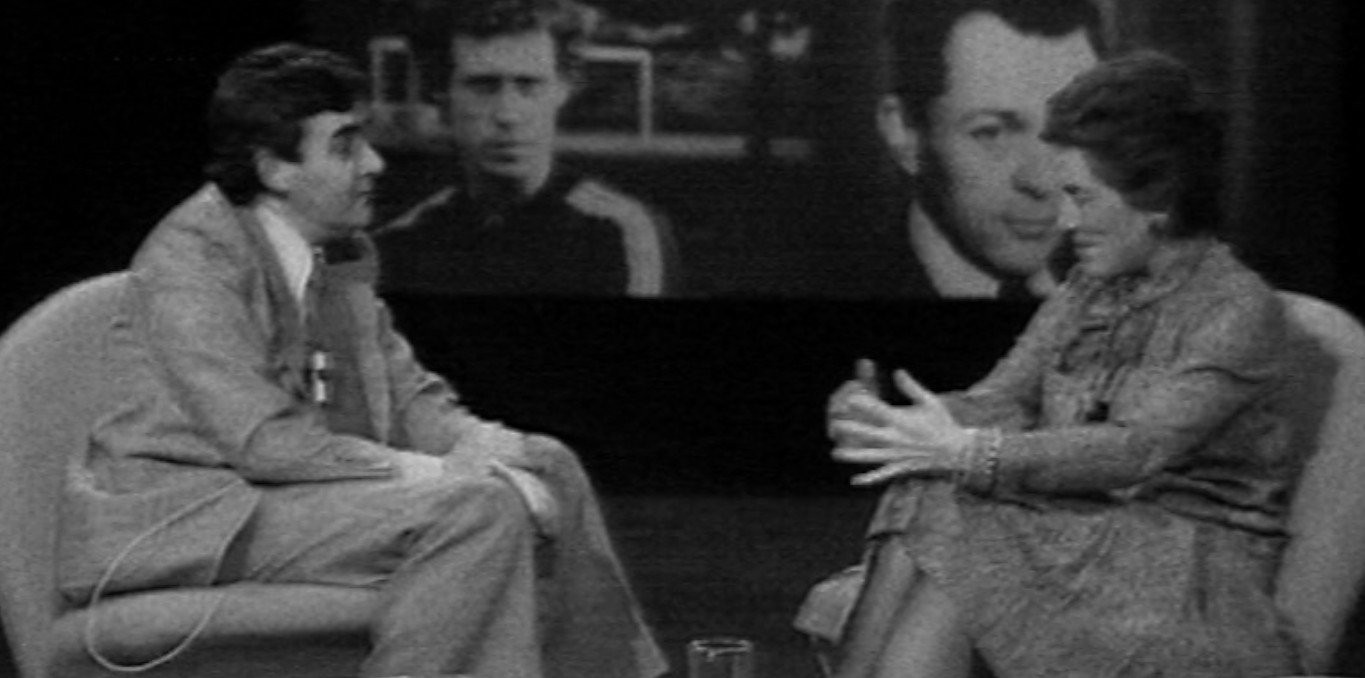
Maso and Miso Go Boating
The feminist video collective Les Insoumuses dissects and responds point by point in a humorous way to Bernard Pivot's special program with Françoise Giroud, Secretary of State for the Status of Women. "On December 30th 1975, after watching Bernard Pivot's programme on Antenne 2 entitled \*One more day and the year of the woman, phew! It'll be over\*, we felt the immense need to express our p...
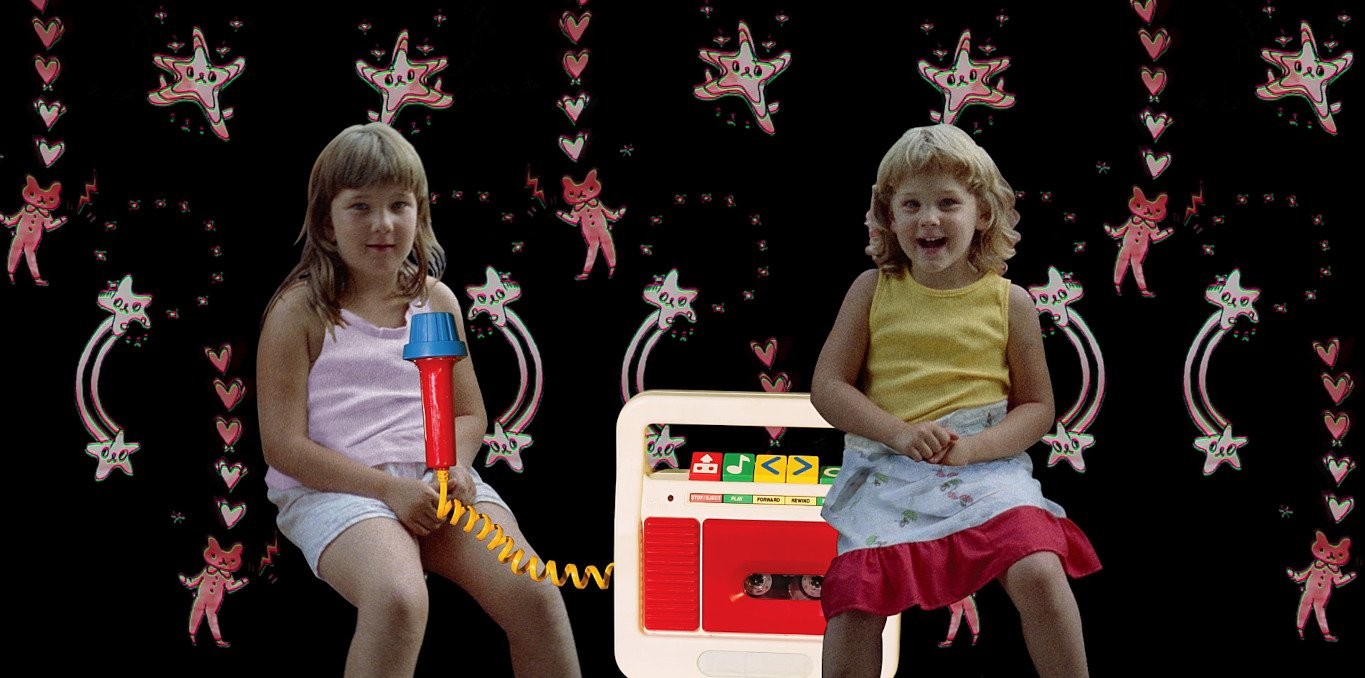
Sisters: Dream & Variations
Tyr and Jasa grew up in an artistic household where art was a way of life. Quirky and insightful sisters, Tyr is a musician and singer while Jasa is an interdisciplinary artist. Inspired by their great-grandmother’s recordings of Icelandic folk songs, they have developed artistic practices that draw on their colourful imaginations and Icelandic roots. Their exploration leads them to journey to ...
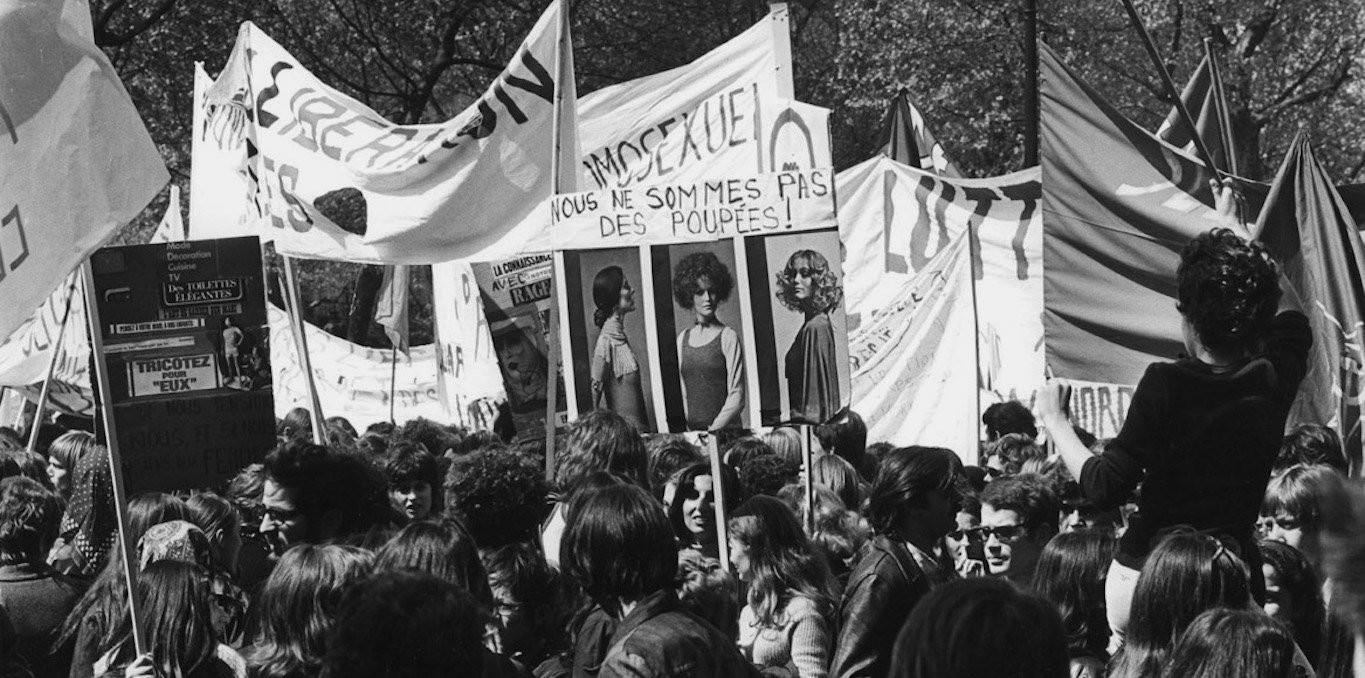
Le FHAR
In 1971, the Front homosexuel d'action révolutionnaire (FHAR) participated in the May Day parade and denounced sexual discrimination. The images recorded during the demonstration punctuate excerpts from a public meeting where the issues raised by the movement are discussed. Normative heterosexuality being the reflection of bourgeois society, conscious homosexuality represents a revolutionary fo...
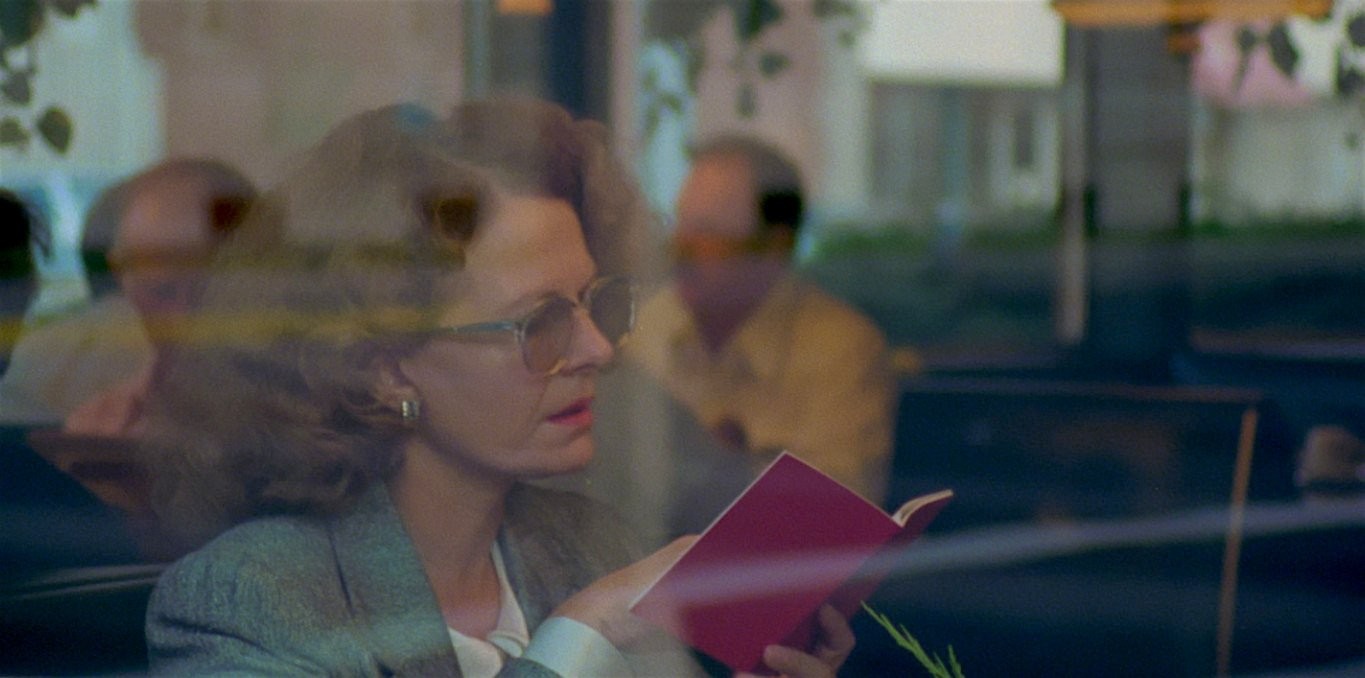
Calamity Jane & Delphine Seyrig, A Story
Calamity Jane & Delphine Seyrig, A Story
Subscription accessThis film is a tribute to Delphine Seyrig and her fascination with the book _Calamity Jane's Letters to her Daughter_. These letters, which are letters from a mother to her absent daughter, became an emblem of feminism in the late 1970s. Seyrig had planned to make a film about Calamity Jane in order to reveal all of the sensitivity she expressed, as well as her view on life, shared in these let...
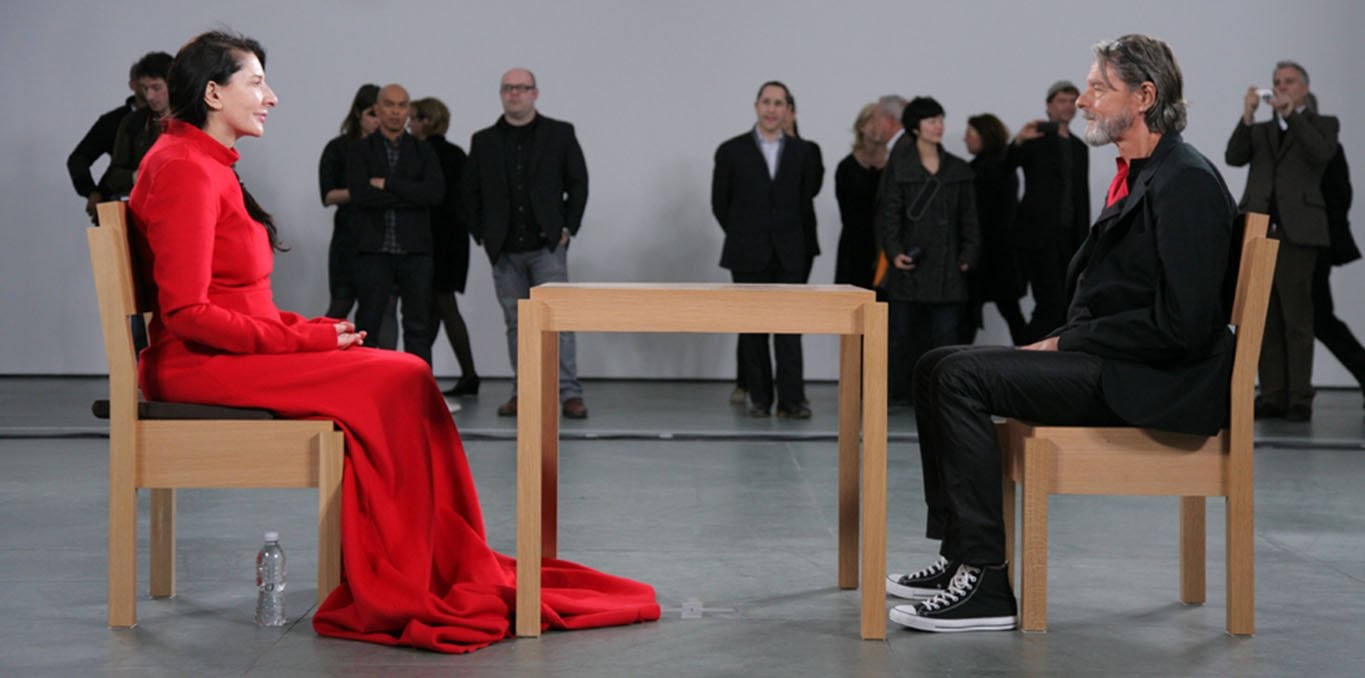
Marina Abramovic : The Artist is Present
Marina Abramovic : The Artist is Present
Subscription accessMarina Abramovic est une artiste émérite qui a toujours utilisé son corps dans son travail. À l'occasion d'une rétrospective que lui consacre le Musée d'art moderne de New York, elle décide de préparer une performance radicale. Pendant trois mois, elle demeurera assise sur une chaise, se contentant de regarder les personnes qui se trouvent devant ses yeux. Un exercice silencieux qui suscitera l...
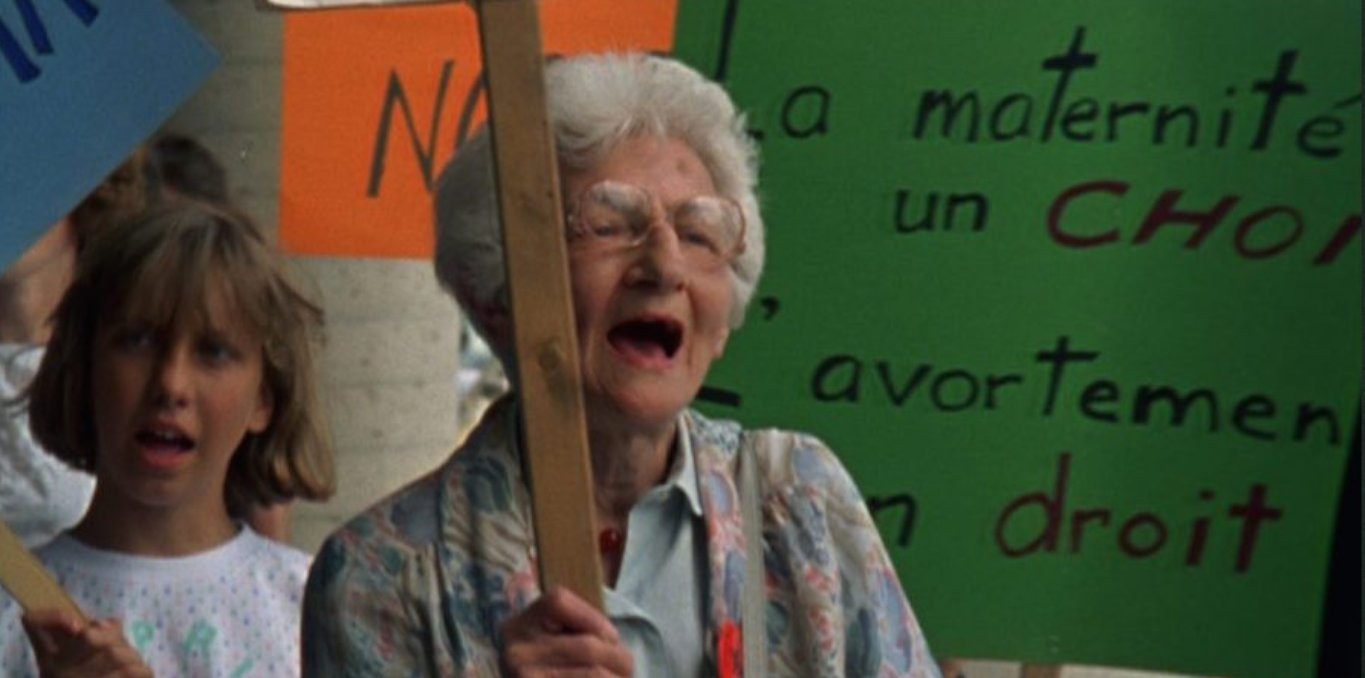
A Vision in the Darkness
Léa Roback, her life, her work, her commitment. Through the “lights” of Léa Roback, a Jewish activist from Quebec who was a feminist, trade unionist, pacifist, and communist, *A Vision in the Darkness* offers a modernist vision of Quebec's history, from the early 20th century to the Duplessis years of the Grande Noirceur (Great Darkness).

Attention féministes!
Subscription access
Portraits of young contemporary feminists. Geneviève, Barbara, Pascale, Coco and Marco: so many ways of being feminists today! At a time when ideologies have been declared dead, these young people still believe in a better world! Through their personal and social commitment, we discover the “new” face of feminism, that of the girls and boys of generations X and Y. A dynamic movement, a mode of ...

Y'a qu'à pas baiser !
Subscription access
This documentary about abortion was made when it was still illegal in France. It looks at why women decide not to keep their child and how an abortion is carried out according to the Karman method. The film also shows the first women’s demonstration in favour of abortion held on November 20, 1971.

Landscape in the Mind's Eye
Subscription access
Through the eyes of children and women from different generations, this film reveals the soul of a small village on Quebec’s North Shore. Madame Kennedy shares a vital bond with the forest; Diane, faced with the hardships of her life’s journey, lifts her head high; Cathy, at 18, possesses the biting clarity of those who have had to fight. The strength and determination of each woman converge...

Clotheslines
Subscription access
_Clotheslines_ poetically documents the pragmatic, symbolic and artistic role of laundry in women's lives. The film presents an enduring, vivid account, showing how the creative energies of women have been sapped by mundane tasks, and in turn how such tasks reflect a ritualistic approach to life.

Sisters in the Struggle
Subscription access
This documentary features Black women active in politics as well as in community, labour, and feminist organizing. They share their insights and personal testimonies on the dual legacy of racism and sexism, linking their lived experiences to the ongoing struggle to end systemic discrimination and violence against women and people of colour.

Mat and Her Mates
Subscription access
October 2018. Mat and her friends organize a self-gynecology workshop in their squat in Nantes. It's an opportunity for filmmaker Pauline Pénichout to paint a portrait of this young woman.

Jours en fleurs
Subscription access
_Jours en fleurs_ is a reclamation of flower-power that celebrates both the fertile and the fierce forces of nature, reinventing their relationship to the feminine. Images of flowering trees soaked in menstrual blood for several months undergo a gestation of decay, whose visceral ravages give rise to a beauty that is at once dark and luminous, endowing them with the Baudelairean “formless and m...

Orlando, My Political Biography
Orlando, My Political Biography
Duration: 1h38Virginia Woolf wrote Orlando in 1928, the first novel in which the hero, who becomes a heroine, lives through five centuries (1588-1928) and changes gender in the middle of the story. A century later, researcher, curator, author, and transgender activist Paul B. Preciado decided to send a filmed letter to Virginia Woolf: his Orlando had stepped out of her fiction and was living a life she could...

Carole Roussopoulos, A Woman With Her Camera
Carole Roussopoulos, A Woman With Her Camera
Subscription accessLe parcours de vie de Carole de Kalbermatten, Valaisanne de bonne famille qui, à 21 ans, gagne Paris, où elle rencontre Paul Roussopoulos. Le film a pour centre son travail de pionnière de la vidéo et pour périphérie son couple, l'amour comme source d'énergie permanente, une incessante complicité créatrice, la politique, la découverte des premiers outils de la vidéo, Jean Genet, la Palestine...

Legends, The Living Art of Risqué
Legends, The Living Art of Risqué
Subscription accessA tribute to the North American pioneers of striptease and the golden age of burlesque coupled with a reflection on sex and gender. Today's elderly women from modest families pose for photographer Marie Baronnet in their work clothes. They evoke their life on the roads, the stage, the struggle for their rights, the transformation of their bodies. These archival images give an idea of their l...

La Conférence des Femmes. Nairobi 85
La Conférence des Femmes. Nairobi 85
Subscription accessAfter Mexico City 1975 and Copenhagen 1980, the United Nations chose Kenya for the 3rd World Conference on Women. Parallel to the official Conference of States is held in July 1985 the Forum of Non-Governmental Organizations (NGO), in which 12,000 women participate. For ten days, on the University campus, they meet to discuss general and feminist political issues: peace, development, apartheid,...

& a Fade to Grey
Lydie Jean-Dit-Pannel, haunted by a stay in the Fukushima region, produces an engaged video poetry dealing with the risks and disasters of civil and military nuclear power. She uses the character she has created for herself, the "lady butterfly", as a vector and makes it coincide with an iconic character, Psyche, who serves as her guide, in a poetic and ironic way. A testimony and a solitary,...

Allers-venues
Women meet for the summer in a Provençal house. In a rather idyllic nature, they get active, paint, do gymnastics, rest, sometimes dressed, sometimes not. They can also be seen inside the house, busy preparing meals and always in the company of animals; cats or chickens. In spite of the fast pace of the images and the wild soundtrack, the atmosphere is serene until the separation, when the holi...

Maso and Miso Go Boating
The feminist video collective Les Insoumuses dissects and responds point by point in a humorous way to Bernard Pivot's special program with Françoise Giroud, Secretary of State for the Status of Women. "On December 30th 1975, after watching Bernard Pivot's programme on Antenne 2 entitled \*One more day and the year of the woman, phew! It'll be over\*, we felt the immense need to express our p...

Sisters: Dream & Variations
Tyr and Jasa grew up in an artistic household where art was a way of life. Quirky and insightful sisters, Tyr is a musician and singer while Jasa is an interdisciplinary artist. Inspired by their great-grandmother’s recordings of Icelandic folk songs, they have developed artistic practices that draw on their colourful imaginations and Icelandic roots. Their exploration leads them to journey to ...

Le FHAR
In 1971, the Front homosexuel d'action révolutionnaire (FHAR) participated in the May Day parade and denounced sexual discrimination. The images recorded during the demonstration punctuate excerpts from a public meeting where the issues raised by the movement are discussed. Normative heterosexuality being the reflection of bourgeois society, conscious homosexuality represents a revolutionary fo...

Calamity Jane & Delphine Seyrig, A Story
Calamity Jane & Delphine Seyrig, A Story
Subscription accessThis film is a tribute to Delphine Seyrig and her fascination with the book _Calamity Jane's Letters to her Daughter_. These letters, which are letters from a mother to her absent daughter, became an emblem of feminism in the late 1970s. Seyrig had planned to make a film about Calamity Jane in order to reveal all of the sensitivity she expressed, as well as her view on life, shared in these let...

Marina Abramovic : The Artist is Present
Marina Abramovic : The Artist is Present
Subscription accessMarina Abramovic est une artiste émérite qui a toujours utilisé son corps dans son travail. À l'occasion d'une rétrospective que lui consacre le Musée d'art moderne de New York, elle décide de préparer une performance radicale. Pendant trois mois, elle demeurera assise sur une chaise, se contentant de regarder les personnes qui se trouvent devant ses yeux. Un exercice silencieux qui suscitera l...

A Vision in the Darkness
Léa Roback, her life, her work, her commitment. Through the “lights” of Léa Roback, a Jewish activist from Quebec who was a feminist, trade unionist, pacifist, and communist, *A Vision in the Darkness* offers a modernist vision of Quebec's history, from the early 20th century to the Duplessis years of the Grande Noirceur (Great Darkness).
